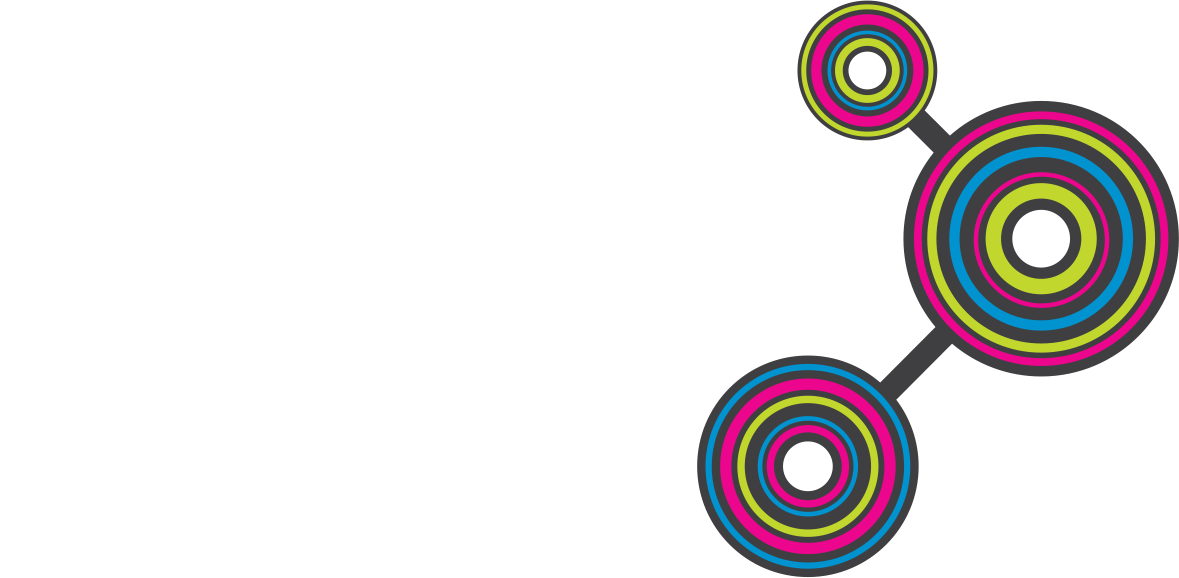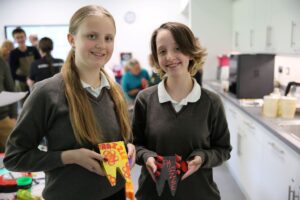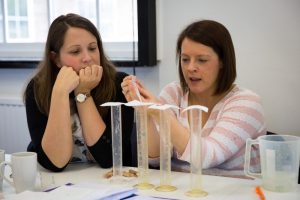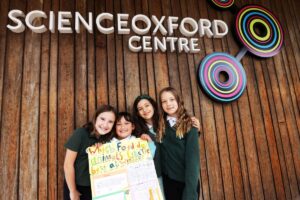An Oxford Touch Down For Astronaut Scott Kelly
Friday 8th December 2017
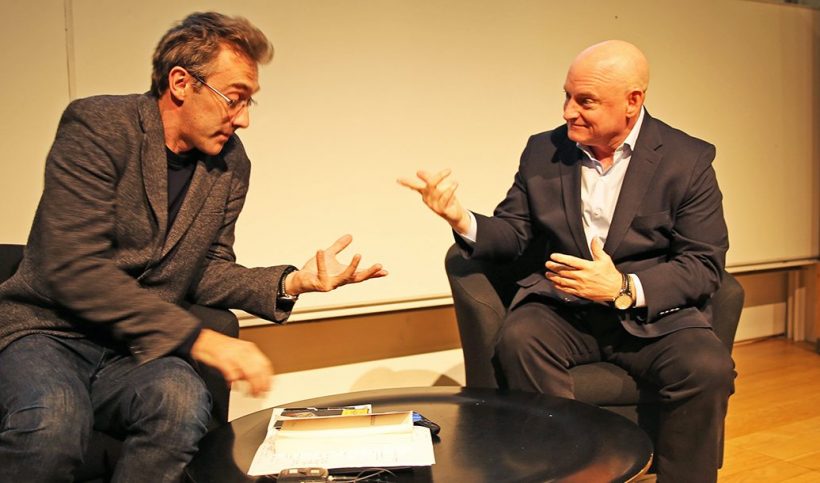
Last month Science Oxford welcomed retired astronaut Scott Kelly to the city, where he talked about his life, career and space. Jude Eades reports on a very special space landing.
As invitations go, the opportunity to meet an astronaut is probably up there in terms of excitement with birthdays, wedding days and pressies on Christmas morning. And not just any old astronaut either, but one who has commanded four space flights and spent more time in space than any other US spaceman.
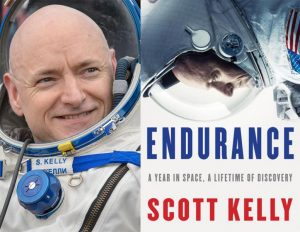
Scott Kelly may not be the most well-known of astronauts doing the circuit of book tours, public speaking and (in the case of Chris Hadfield) gigs, but he’s certainly one of the most impressive in terms of his life and career trajectory. Born an identical twin (his brother Mark was also an astronaut) Scott was a rebel at school – disenfranchised and ready for the wrong side of the tracks. As he says in his book Endurance: A year in space, a lifetime of discovery,
“I was a terrible student, always staring out of windows or looking at the clock, waiting for class to be over. My teachers scolded, then chastised, then finally – some of them – ignored me.”
However, he managed to graduate from high school and get a place at the only college that would accept him. One day, on the hunt for snacks in the campus bookstore, a marketing display caught Scott’s eye. The display was for a book called The Right Stuff (1979) by eminent American author Tom Wolfe. It was an account of the rocket airplane experiments in the late 1940s and early 1950s and the beginnings of the space program, looking at the psychology of the rocket pilots and astronauts and the competitive spirit that drove them. The narrative sparked a fire in Scott. This most unscholarly of scholars was utterly captivated by the story of the navy test pilots – the danger, the risks, the speed, the survival. And these were real guys doing real world jobs that were available and attainable. Something imprinted in to his psyche in that moment and Scott’s future was determined.
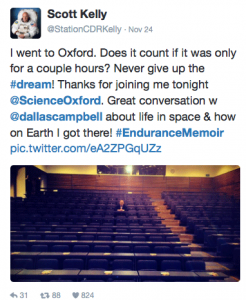 Fast forward nearly forty years, and here I am, sitting in a packed theatre at the Said Business School, listening to Scott regaling this story to a captivated audience. We hang off his every word as he describes his challenging early life, the book that inspired him to become a navy test pilot, and how landing a plane on a warship can be a bit tricky.
Fast forward nearly forty years, and here I am, sitting in a packed theatre at the Said Business School, listening to Scott regaling this story to a captivated audience. We hang off his every word as he describes his challenging early life, the book that inspired him to become a navy test pilot, and how landing a plane on a warship can be a bit tricky.
Having met him earlier in the evening (we shook hands, it was a moment), I can confirm that Scott is the archetypal astronaut: engaging yet also contained and thoughtful as the commander of a space shuttle needs to be.
On stage, he is charismatic, open and funny – in fact very funny when talking about tackling his ablutions on the International Space Station or taking a satellite call from his grown-up daughter who is feeling lonely – but also candid and very moving when interviewer Dallas Campbell asks him about receiving bad news in space, and the toll such a job takes on family life.
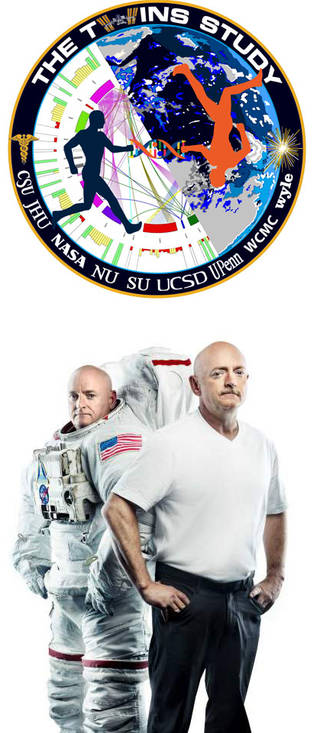
Picture: nasa.gov/twins-study
Endurance is based on an a NASA experiment that Scott and his brother Mark undertook to discover how space travel affects the human body – the data from which could inform how space travellers will cope should a Mars mission ever gets off the ground. Scott spent (nearly) a whole year in space, undergoing physiological and psychological tests that his twin was also having back on Earth. Dallas didn’t delve too deeply into the findings of the research but one emerging theme has been the genetic impact of space travel.
To explain, here’s a quick story about shoelaces…
Telomeres are the part of human cells that affect how our cells age. They are the caps at the end of each strand of DNA that protect our chromosomes, a bit like the plastic tips at the end of shoelaces.
Without telomeres, DNA strands become damaged and our cells can’t do their job as well – just like the shoelace without the plastic tip becomes frayed and eventually unusable. Researchers have studied samples of both of the twins’ cells and discovered that Scott’s telomeres are in better condition than his earthling brother. In other words, his shoelaces are in better shape and a trip to space may have more positive effects on the human body than originally thought.
‘the hand of God lifting us up at 17,000 miles per hour.’
I could spend another 30,000 words eulogising about the talk and meeting an astronaut and describing how soft their feet become in zero gravity, but I’ll stop and let you buy the book for all that. However, there are two things that have really stayed with me after this evening. Firstly, Scott’s stunning description of what it’s like to take off in a space shuttle strapped to two solid rocket boosters and forced vertically at three times the earth’s gravity. In the book, he describes how ‘the crushing force smashes me into my seat and makes it difficult to breath.’ On stage, he talks about the ‘hand of God lifting us up at 17,000 miles per hour.’ There are audible gasps for the audience.
 The ‘smell of space.’
The ‘smell of space.’
Secondly, is when he talks about the ‘smell of space’. Space is a vacuum but that doesn’t mean it can’t whiff a bit. Apparently, the odour is kind of like burning metal or gunpowder, it can be tough on the nostrils and doesn’t mix well with the existing aromas of garbage and disinfectant on a space station. To me that sounds horrible and utterly amazing all at the same time; to know that our vast, elemental universe with all its violence and beauty, has a pungent reminder of its very creation and expansion. WOW!
Now, like an excited child on Christmas morning, I’m off to read chapter 17 of Scott’s book – the one where Tim Peake drops in to the ISS for a six-month stay…
